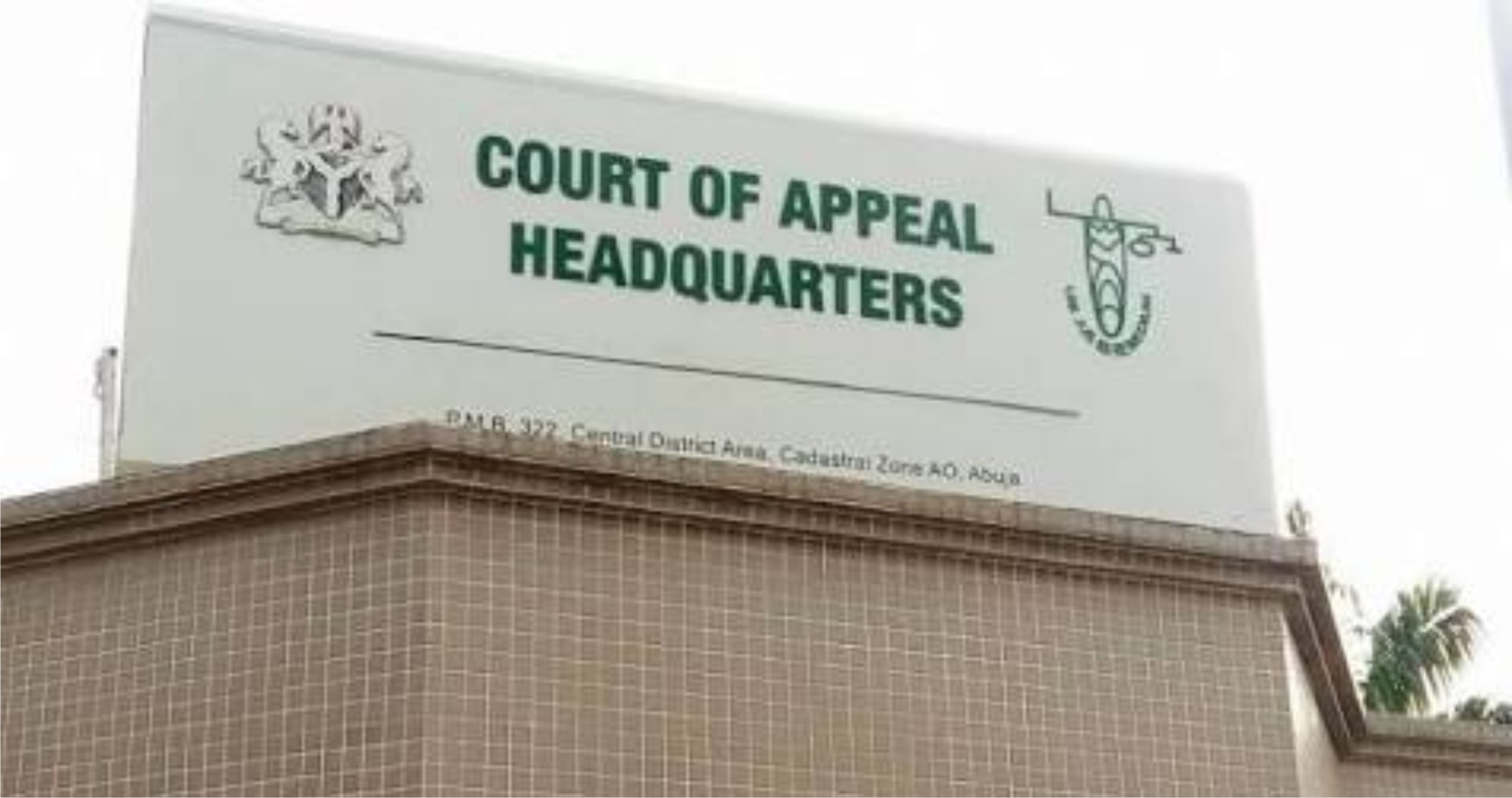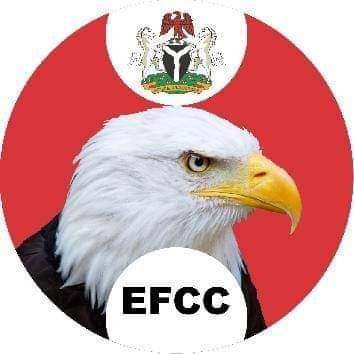Politics
A’ Court Reserves Judgement In Suit Challenging Buhari’s Qualification

The Abuja division of the Court of Appeal has reserved its judgment in the appeal filed against President Muhammadu Buhari’s academic qualification for the 2019 presidential election.
Justice Atinuke Akomolafe-Wilson, led three- member panel of the court reserved judgment after listening to the argument canvassed by counsel to parties in the suit.
At yesterday’s proceedings, counsel to the appellant, Ukpai Ukairo, insisted that President Buhari was not educationally qualified to have stood for the presidential poll on the grounds that the required certificates were not attached to his form CF001, submitted to the Independent National Electoral Commission (INEC) for clearance to contest the presidential poll.
The counsel denied the claim that the suit of the appellant was statute barred, adding that the case was instituted on November 5, 2018 within the 14 days allowed by law. He said the cause of action started with the announcement and publication by INEC of successful candidates for the 2019 general election on October 25, 2018.
Ukairo, therefore, urged the Court of Appeal to allow the appeal and set aside the decision of the Federal High Court on grounds of miscarriage of justice.
He asked the court to nullify Buhari’s participation in the February 23 presidential election because he was not educational qualified for the poll at the time he did.
However, lawyers to the first and second respondents urged the court to dismiss the appeal for being incompetent and lacking merit.
Buhari’s counsel, Abdullahi Abubakar, specifically told the Appeal Court that the case of the appellant was statute barred, having not been filed within the mandatory period stipulated by the law.
He urged the court to uphold the decision of the Federal High Court to the effect that the suit was not filed in line with the position of the law.
Counsel to the All Progressives Congress (APC), Babatunde Ogala, argued on the line with Buhari and urged the court to dismiss the appeal, while counsel to INEC, Onyeri Anthony, said the commission is neutral and would abide by the decision of the Court.
Kalu, Ismail and El-Kuris had approached the appellate court to nullify and set aside the judgment of the Abuja division of the Federal High Court, which declined to hear their suit instituted to challenge the educational qualification of President Buhari before the conduct of the 2019 general election.
The appellants are asking the court to reverse the judgment of Justice Ahmed Mohammed on the grounds that the processes filed by Buhari and used to strike out their suit were not competent.
While faulting the judgment of the lower court, which was predicated on the grounds that the suit was statute barred, the appellants claimed that the Federal High Court erred in law and in its decision because they did not challenge the primary election that produced Buhari as candidate of the APC.
They, therefore, urged the Court of Appeal to assume jurisdiction over the suit and grant all the reliefs sought at the Federal High Court but which were refused.
Among the reliefs were a declaration that Buhari submitted false information regarding his qualification and certificate to INEC for the purpose of contesting election into the office of the President of Nigeria and that he should be disqualified.
They also prayed for an order of court directing INEC to remove Buhari’s name as a candidate of APC and another order restraining Buhari from parading himself as a candidate in the 2019 presidential election and also APC from recognizing Buhari as a candidate.
Politics
Rivers Political Crisis: PANDEF Urges Restraint, Mutual Forbearance

Accordingg to the statement, the Board and National Executive Committee of PANDEF, noted with very grave concern the recent spate of political developments in Rivers State.
“Regrettably, these developments have now degenerated into the decision of the Rivers State House of Assembly to commence impeachment proceedings against the governor and deputy governor.
“This is a deeply disturbing situation that demands urgent attention in order to forestall further escalation and breakdown of law and order.
“This concern is heightened by the critical importance and strategic centrality of Rivers to the Niger Delta region and to the broader socio-political stability and economic wellbeing of Nigeria as a whole”, the statement said.
The Forum called on all parties involved in the resurgent political imbroglio to sheathe their swords and embrace peace.
“This should be guided by the principles of give-and-take, dialogue, tolerance, and political equanimity.
“All stakeholders must place paramount importance on peace, development and the welfare of the people of Rivers.
“We must now focus squarely on good governance and development of the state,” the Forum said.
PANDEF commended President Bola Tinubu, the leadership of the All Progressives Congress (APC), respected elders of Rivers State, and other well-meaning Nigerians for their previous and ongoing efforts aimed at restoring peace and stability in the state.
Politics
Wike’s LGAs Tour Violates Electoral Laws — Sara-Igbe

Speaking in an interview on Saturday, January 10, Chief Sara-Igbe alleged that the minister had flouted regulations governing the commencement of electioneering campaigns by moving from one local government area to another to galvanise political support.
According to him, the action amounted to a clear breach of electoral guidelines being carried out with a troubling sense of impunity that could undermine the rule of law.
“Wike has violated the electoral laws of campaigning by going from local government to local government to talk to the people. He travelled from one local government to another. As a result of his visits to local government areas, he has broken election regulations and continues to do all these things without fear of repercussions”, Chief Sara-Igbe said.
The remarks came as Chief Wike was set to round off a state-wide “thank-you” tour that covered all 23 local government areas of Rivers State.
Although the minister had described the tour as an appreciation visit following support for President Bola Tinubu in the 2023 general elections, critics say the engagements have assumed an overtly political character.
Observers note that during several stops, including recent visits to Andoni and Bonny local government areas, the minister rallied supporters across party lines under what he termed a “Rainbow Coalition,” a move widely interpreted as part of a broader political strategy.
During these engagements, Chief Wike was also reported to have made remarks perceived as a veiled challenge to the authority of Governor Siminalayi Fubara, while repeatedly referencing the 2027 elections and urging supporters to prepare to “correct the mistake” of 2023.
Chief Sara-Igbe warned that allowing such activities to continue unchecked could erode public confidence in Nigeria’s electoral process and called on relevant authorities to enforce existing laws without fear or favour.
Politics
EFCC Alleges Blackmail Plot By Opposition Politicians

The Commission, in a statement on Wednesday, claimed that there were plans by the same group to escalate a smear campaign against its Chairman, Ola Olukoyede, to frustrate ongoing investigations and prosecutions involving prominent individuals.
The statement endorsed by the agency’s spokesman, Mr Dele Oyewale, claimed that the action was intended to distract the Commission through unfounded allegations of political bias in the discharge of its duties.
The EFCC warned that it would not stand by and watch “those recruited into this ignoble enterprise” or allow any attempt to derail it from “the patriotic task of improving public accountability in Nigeria.”
The Commission made it clear that those recruited into this venture were under close watch, adding that it would not tolerate any attempt to distract it from the patriotic task of improving public accountability in Nigeria.
“The EFCC reiterates its non-political stance in all its activities. Facts on the ground clearly show that any political actor belonging to the ruling party or opposition party, with corruption baggage, has no hiding place from the operational radar and dynamics of the Commission.
“As a matter of fact, several strong members of the ruling and opposition parties are either facing trial before the courts or being investigated by the Commission.
“It is needful that Nigerians appreciate the fact that the Commission is keeping faith with its Establishment Act in all its operations.
“Therefore, the Commission reiterates its commitment to justice, without fear or favour, in the fulfilment of its mandate,” the statement pointed out.
-

 News3 days ago
News3 days ago2026 Budget: FG Allocates N12.78bn For Census, NPC Vehicles
-

 Sports3 days ago
Sports3 days agoAFCON: Osimhen, Lookman Threaten Algeria’s Record
-

 Politics3 days ago
Politics3 days agoWike’s LGAs Tour Violates Electoral Laws — Sara-Igbe
-

 Politics3 days ago
Politics3 days agoRivers Political Crisis: PANDEF Urges Restraint, Mutual Forbearance
-

 Sports3 days ago
Sports3 days agoNPFL To Settle Feud between Remo Stars, Ikorodu City
-

 Sports3 days ago
Sports3 days agoPalace ready To Sell Guehi For Right Price
-

 Sports3 days ago
Sports3 days agoArsenal must win trophies to leave legacy – Arteta
-

 Sports3 days ago
Sports3 days agoTottenham Captain Criticises Club’s Hierarchy

